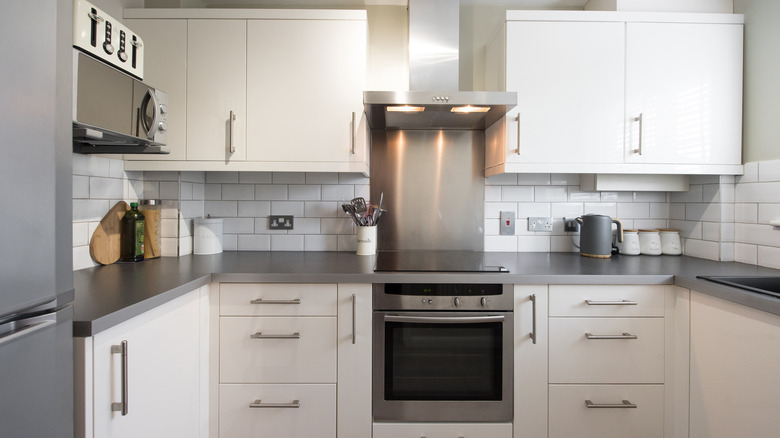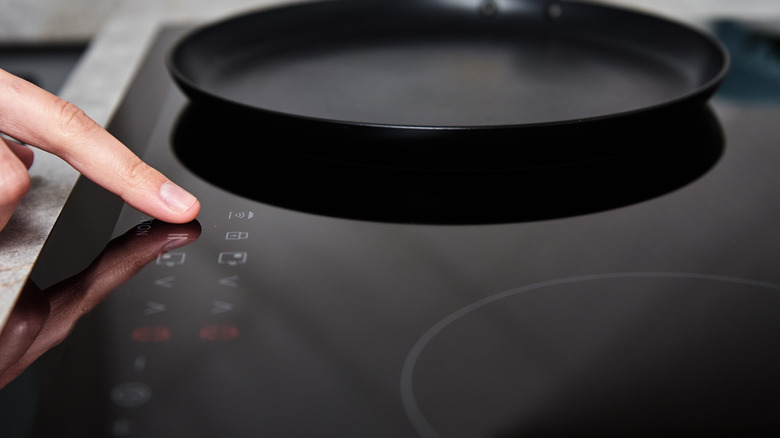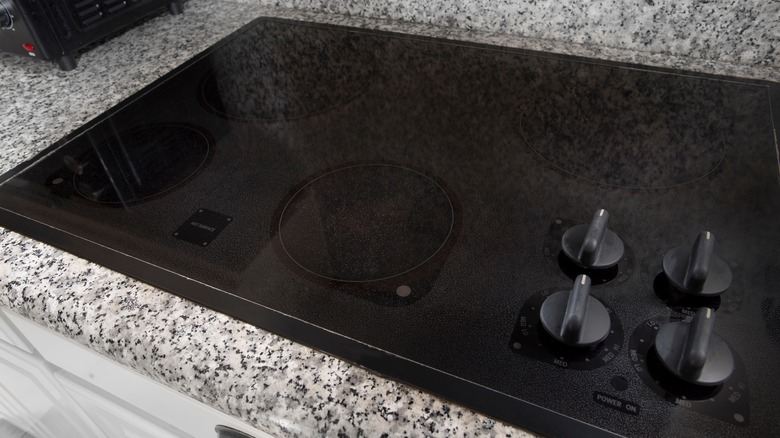Induction Vs Electric Range Oven: The Biggest Differences To Know Before Buying
Choosing a new oven for your kitchen can be an overwhelming experience as you browse through all of the options on the market. When buying a new range oven, it helps to know the difference between various models, be they gas, electric, or induction. Unless your home is equipped for a gas oven, you might be trying to figure out the differences between induction and electric.
Induction ovens use electricity, but unlike electric range ovens, they create heat through copper coils generating electromagnetic fields underneath the cooktop. The heat transfers to special compatible cookware for boiling, frying, and other preparation methods, and they turn off automatically once the pan or pot is removed.
Induction ovens can offer several valuable benefits to a home cook. One of the biggest advantages is that an induction oven can offer 10% more energy efficiency in your home than an electric range, per the The U.S. Department of Energy. They are also safer, because the surface only heats up when it comes in contact with compatible cookware, minimizing the chance of dangerous burns. However, these aren't the only differences to be aware of regarding induction vs. electric range ovens.
Cost considerations and other features
Induction ranges are typically more expensive than electric ranges, starting at around $1,000. However, proponents of induction cooking say you save on electricity costs in the long run because 85% of the heating energy transfers directly to the cookware, so you waste less energy. Homeowners in the United States can also save up to $840 in rebates when they switch to an ENERGY STAR-certified range or oven. Today's induction models also offer a full range of features, including smart technology, touchscreens, and specialty settings. Getting used to the new features may be a bit of an adjustment for some cooks.
One of the biggest considerations when choosing between your options is likely cleaning. It's simply easier to clean an induction stove top. Spilled food and water is less likely to burn on an induction range, which can reduce your cleaning time in the kitchen. Induction ovens also boast the ability to maintain an even, consistent temperature, whether on a high or low setting, further reducing your chances of spills. In addition, unlike electric ranges, they don't feature grates or coils you need to clean. Compared to a traditional electric range, an induction range offers faster cooking times and precise temperature control.
As a drawback, they don't offer residual heat like an electric range, which can be handy for keeping food warm. These aren't the only considerations to make, however.
Making the choice between the two
Deciding whether you should buy an induction or an electric range involves looking at several factors, including your budget, cooking preferences, and flexibility. First, expect to spend more on your induction range than you would on an electric range. If you want to improve your efficiency in the kitchen, induction might be a good choice, especially if your kitchen has an electric oven you want to replace. You may be limited in size, though, if you're putting the induction range into a pre-existing slot in your kitchen, which could affect your spending.
Despite these features, there may be a hidden cost to switching. Buying an induction range could require you to purchase new cookware, which adds to your costs. Induction cookware options include pots and pans with bases made of stainless steel, cast iron, and enameled steel, so if you use these, you probably don't need to purchase all new cookware. If you currently use cookware with glass, copper, aluminum, or ceramic bottoms, however, you may need to upgrade. To determine if this is the case, you can use a magnet and test to see if it sticks to the bottom of your pot or pan. If it does, you can use it on induction ranges. When you finally decide whether to buy the electric range or the induction range, consider these possible costs and needs to make an informed choice for your kitchen.


